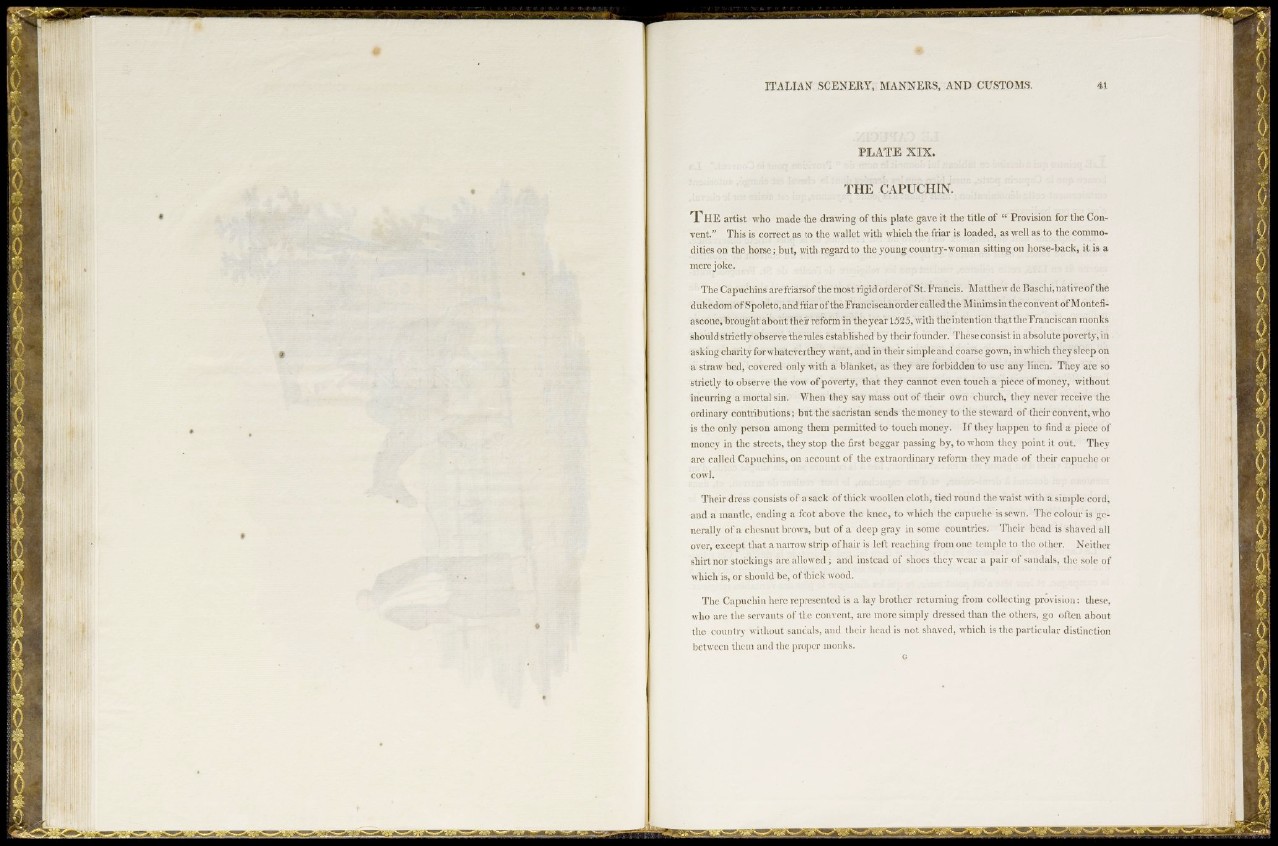
ITALIAN SCENERY, MANNERS , AND CUSTOMS.
FILATE XIX.
THE CAPUCHIN.
T h e artist who made the drawing of this plate gave it the title of « Provision for tlie Convent."
This is correct as to the wallet with which the friar is loaded, as well as to the commodities
on the horse; but, M'ith regard to the young country-woman sitting on horse-back, it is a
mere joke.
The Capuchins are friars of the most j-igid order of St. Francis. Matthew de Baschi, nativeof the
dukedom of Spoleto, and friar of the Franciscan order called the Minims in the convent of Montcfiascone,
brought about their reform in theyear 1525, with the intention that the Franciscan monks
should strictly observe the rules established by their founder. These consist in absolute poverty, in
asking charity forwhateverthey want, and in their simpleand coarse gown, in which they sleep on
a straw bed, covered only with a blanket, as they are forbidden to use any linen. They are so
strictly to observe the vow of poverty, that they cannot even touch a piece of money, without
incurring a mortal sin. When they say mass out of their own churcli, they never receivc the
ordinary contributions; b u t the sacristan sends the money to the steward of their convent, who
is the only person among them permitted to touch money. If they happen to find a piece of
money in the streets, they stop the first beggar passing by, to whom they point it out. They
are called Capuchins, on account of the extraordinary reform they made of their capuche or
cowl.
Their dress consists of a sack of thick woollen cloth, tied round the waist with a simple cord,
and a mantle, ending a foot above the knee, to which the capuche is sewn. The colour is generally
of a chcsnut brown, but of a deep gray in some countries. Their head is shaved all
over, except that anaiTOW strip of hair is left reaching from one temple to tlie other. Neither
shirt nor stockings arc allowed ; and instead of shoes they wear a pair of sandals, the sole of
which is, or should be, of thick wood.
The Capucliin here represented is a lay brother returning from collccting provision; these,
wlio are the servants of the convent, are more simply dressed than the others, go often about
the country without sandals, and their head is not sliaved, which is the particular distinction
between tlicin and ihc proper monks.
mm m